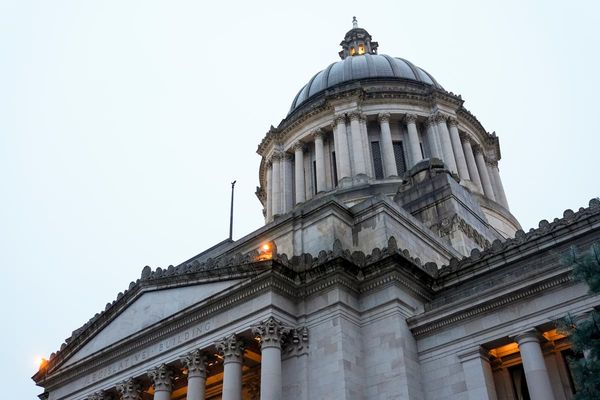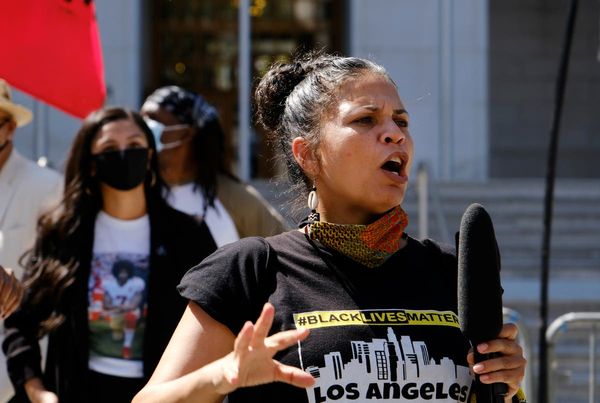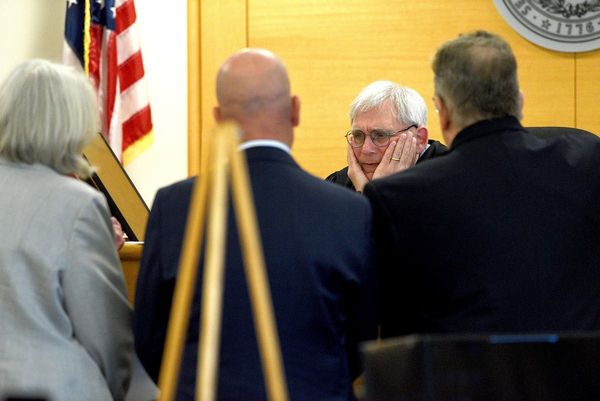
It’s a Thursday afternoon in April, 2008. After weeks of slashing spending for the Rudd government’s first budget in exhaustive expenditure review committee meetings, Treasurer Wayne Swan boards a flight to Washington DC for meetings with the International Monetary Fund and World Bank, plus with the Bush administration’s senior economic officials.
Over the next few days, one of the more important “sliding door” moments in Australian economic history is about to occur, one that makes a huge difference to the lives of hundreds of thousands of Australians.
Swan and Treasury have been tracking the progress of the US subprime crisis and its impacts on the American financial system. US Treasury secretary Henry Paulson has kept him directly informed of what’s unfolding within the US banking system.
But Swan’s priority is the 2008 budget, intended to lower inflation by dramatically reducing spending. Kevin Rudd turned the tables on the Coalition in the election campaign the previous November by portraying the Howard government as reckless spendthrifts fueling inflation and higher interest rates. On the eve of the election, Rudd promises he will take a “meat axe” to the public service. Swan has spent a month in expenditure meetings with finance minister Lindsay Tanner, pulling savings like teeth from ministerial colleagues.
But in Washington, the talk isn’t of getting inflation down. Swan starts seeing the rising level of panic arising from the financial crisis. The IMF briefing warns of $1 trillion in losses. As he recounts in his memoir of his time as treasurer, he asked a Wall Street investor and former Australian Treasury official if the collapse of major investment bank Bear Stearns the previous month was the worst things were going to get. It was merely the end of the beginning, the investor replies — presciently, given the fate of Lehman Brothers and Merrill Lynch in September.
Alarmed, Swan tells Treasury secretary Ken Henry, “I think we’re going to have to rethink our budget strategy.” As he hears more and more — and sees the body language of officials from around the world — he becomes convinced the planned spending cuts are going to occur during “a profound meltdown in global financial markets precipitating a global recession and the job losses that would come with it”. When he returns to Australia on April 15, he tells Rudd — who has heard similar stories on his travels — that the budget has to be revised.
The document Swan unveils the following month is still intended to be contractionary — it proposes a surplus of $21 billion — but the meat axe has vanished. Spending actually goes up, in cash terms, though it falls slightly after inflation. Those numbers will only hold until Labor launches the first of its stimulus measures in October. Asked at the budget press conference where all the big spending cuts are, Swan says if he had pursued them, “you would have slammed the economy into a wall”. Even as he’s speaking, economic growth in the June quarter has stalled at 0.3%.
The stimulus packages unveiled in the following 12 months, along with bank deposit guarantees and the Reserve Bank’s dramatic cutting of interest rates, are seen as the measures that saved Australia from the kind of ferocious recession that savaged the US and UK economies.
But Swan putting away the meat axe was a crucial first step. Had he pushed ahead with massive spending cuts at the start of 2008-09 — with their concomitant impact on consumer sentiment — the economy may well have developed an unstoppable negative momentum, defying Labor’s cash handouts and infrastructure spending and sending unemployment spiralling. Hundreds of thousands of people would have been sent into unemployment of the kind that wreaked havoc in the American and British economies.
It wouldn’t be the last time Swan made such a call. In December 2012, having proudly and repeatedly boasted that the budget was returning to surplus, he announced that another round of revenue write-downs meant the quest for surplus was being abandoned, as further spending cuts would damage a weak economy.
While having to publicly dine on such a massive shit sandwich was mortifying for Swan and Julia Gillard, it’s little understood how right that call was. In the previous six months, unemployment had risen from 5% to 5.4% and would continue rising in the months beyond, closing in on 6% when Labor lost office in 2013. Unemployment wouldn’t persistently fall below 6% until Malcolm Turnbull was prime minister — and a surplus wouldn’t be obtained until Swan’s chief of staff Jim Chalmers had become treasurer, last year.
The political history of the past decade and a half in Australia has been turbulent enough. A great recession in 2009, and the damage to our social fabric as a result, would have made it far more turbulent still.







